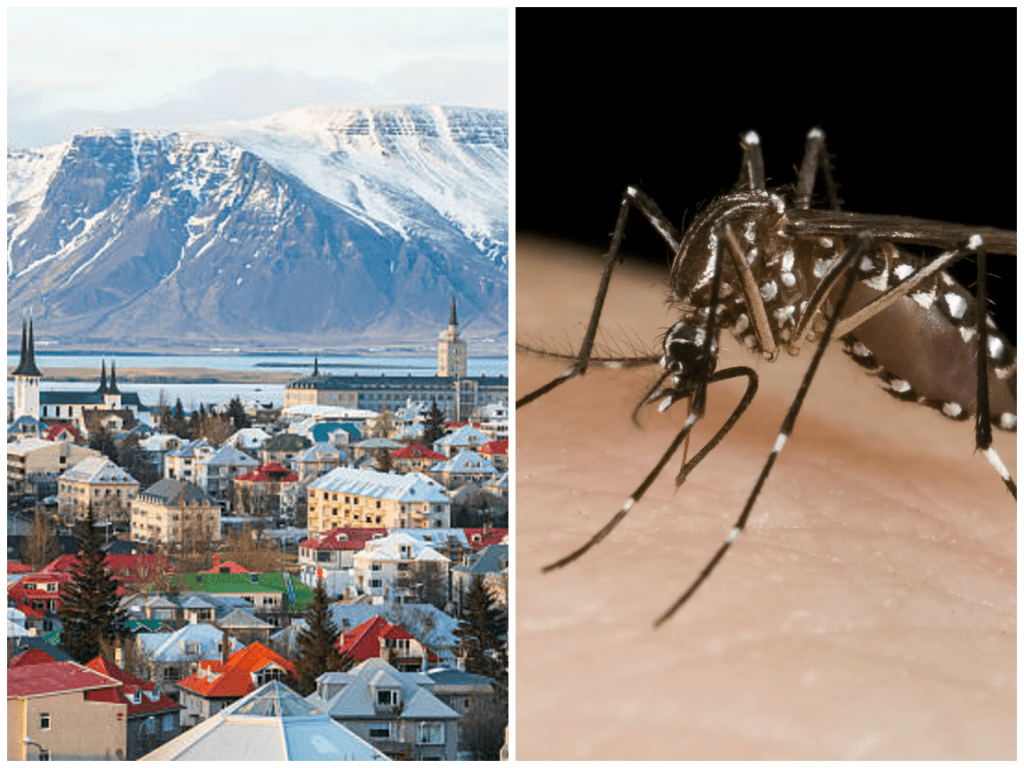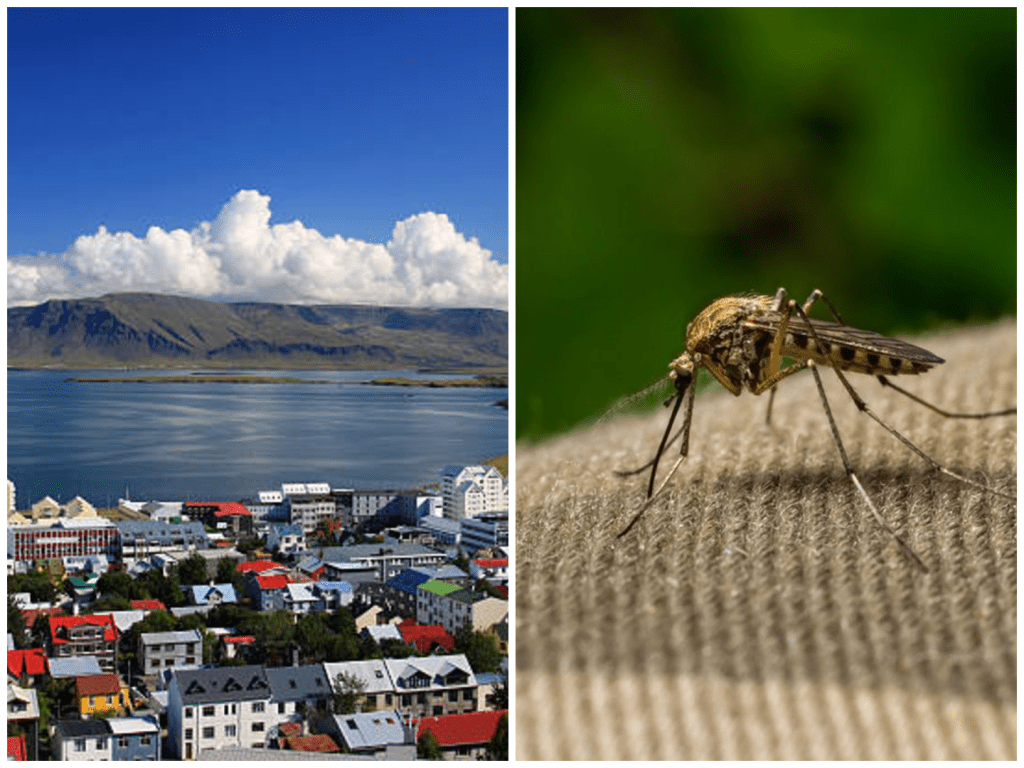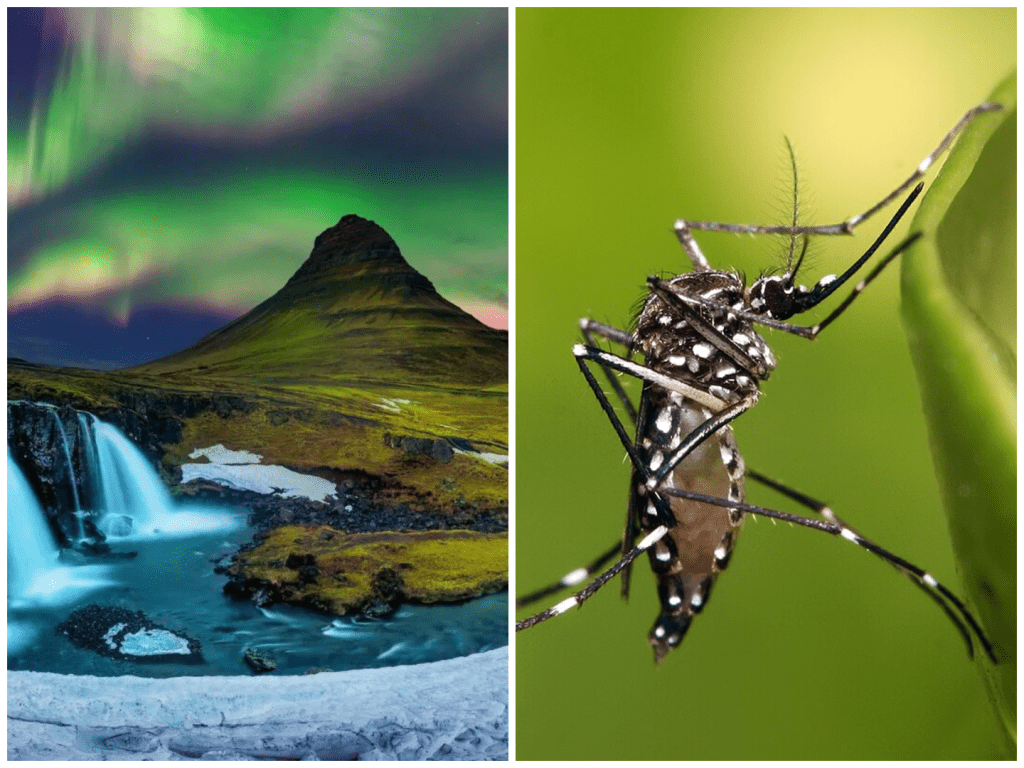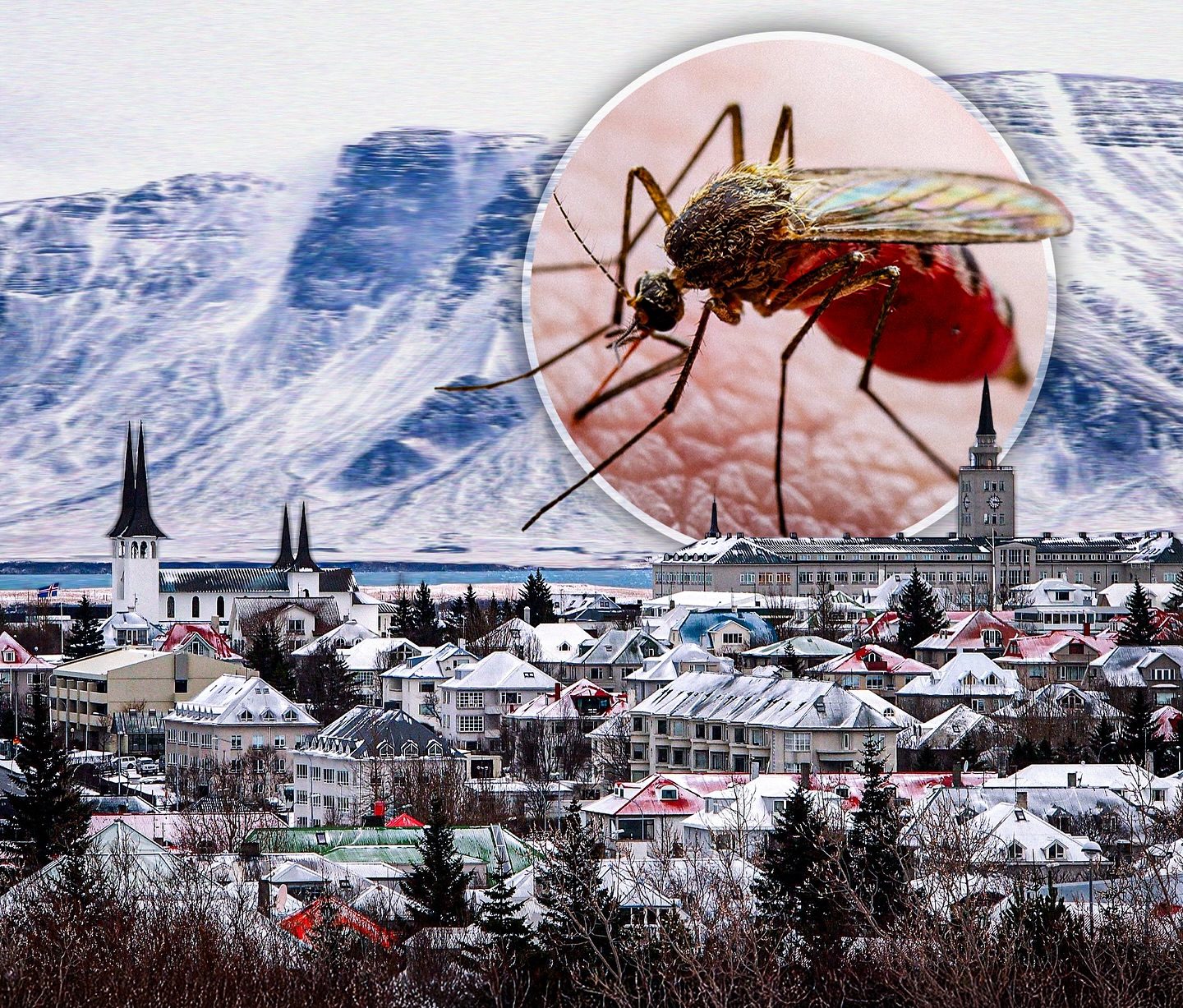I Moved to Iceland and Haven’t Seen a Mosquito Since—and the Reason Is Wilder Than You Think
Let me start with a weird truth I didn’t believe until I experienced it myself: Iceland doesn’t have mosquitoes. I know how wild that sounds. A place with waterfalls, volcanoes, black sand beaches, and even puffins—but zero mosquitoes? I thought someone was messing with me when I first read that fact online. But after living in Reykjavik for a few months, I can honestly say it’s true. Not a single buzz in the ear. Not one itchy bump. It’s like stepping into a dream if you’ve ever been a magnet for those little bloodsuckers elsewhere in the world.

The thing is, you don’t really notice the absence of something until you realize it’s usually everywhere. I’d grown so used to swatting my way through summer that I didn’t know how to behave without that low, ominous mosquito hum. Iceland, it turns out, is one of the only countries—some say the only one—that has managed to stay completely mosquito-free. And what’s even more fascinating is that it’s not because it’s just too cold. Greenland and parts of Norway are colder, and they have mosquitoes. Iceland’s secret is something much stranger: the country’s climate is too unstable for mosquitoes to survive.
Here’s how it works. Mosquitoes need very specific conditions to complete their life cycle. In most places, that’s standing water, some heat, and a stable temperature long enough to go from egg to larva to full-grown, winged menace. But Iceland is unpredictable. The weather swings wildly even in the same day. One hour, the temperature might rise just enough for mosquito eggs to start developing—and the next, it drops below freezing again, halting everything in its tracks. That constant freeze-thaw cycle acts like nature’s pest control, wiping out any eggs or larvae before they ever stand a chance.

And it’s not just about temperature. Iceland’s soil composition, the mineral makeup of its water, the strong oceanic winds, and even the island’s geological activity might all play a role. Scientists haven’t fully pinned down every detail, but they all seem to agree that it’s a unique combination of elements that makes Iceland a no-fly zone for mosquitoes. There’s even a preserved mosquito in a jar at the Icelandic Institute of Natural History, a reminder of the one time someone spotted one—on an airplane, not from Iceland itself.
Of course, Iceland isn’t insect-free. There are other flying bugs here, like midges, especially around places like Lake Mývatn. They’re annoying, sure, but they’re not disease carriers, and they don’t leave itchy bites. They don’t even try to hide their presence the way mosquitoes do. Still, nothing quite matches the surprise of walking by a lake at dusk and realizing there’s not a single mosquito cloud waiting for you.
It got me thinking about how much time and money the rest of the world spends trying to get rid of mosquitoes. From sprays to candles to electric zappers, we’ve created an entire industry around surviving these pests. We lose sleep, get sick, and cancel outdoor plans because of them. In some parts of the world, mosquitoes aren’t just annoying—they’re dangerous. They spread malaria, dengue, Zika, and more. But here in Iceland, people walk barefoot in the grass during summer without a second thought. No citronella candles. No nets over the bed. It’s just…peace.

What’s crazy is how underappreciated this is until you experience it. Travel blogs will rave about Iceland’s geysers and Northern Lights, but barely mention the mosquito thing. And yet, for me, it’s been one of the most delightfully bizarre parts of moving here. You don’t realize how much mental energy goes into avoiding mosquitoes until you’re somewhere you don’t have to. It’s like your nervous system gets to take a little vacation.
I’ve had conversations with locals who’ve grown up never knowing what it feels like to slap your arm and see a smear of blood. Some didn’t believe me when I described what it’s like in other countries during mosquito season. One Icelandic friend laughed and said, “If we ever get them, I’m moving to Greenland.” I told him Greenland has mosquitoes. He didn’t laugh after that.
There are some scientists who say this mosquito-free status might not last forever. With global temperatures rising and more species slowly making their way to Iceland, it’s possible mosquitoes could someday find a way to survive here. Already, over 200 new insect species have been recorded in the past couple of decades. Still, for now, it’s holding. Iceland remains one of the last mosquito-free frontiers, and trust me—once you experience it, you never want to go back.
I don’t know what the future holds. Maybe one day I’ll walk outside in Reykjavik and hear that dreaded high-pitched buzz for the first time. But until then, I’m soaking it in. I’m enjoying every open window at night, every sunset walk near the water, and every summer picnic without a bottle of bug spray. If you ever get the chance to visit Iceland, don’t just look up at the sky for the Northern Lights—take a second to close your eyes and listen. That silence? That peace? That’s the sound of a land without mosquitoes.

